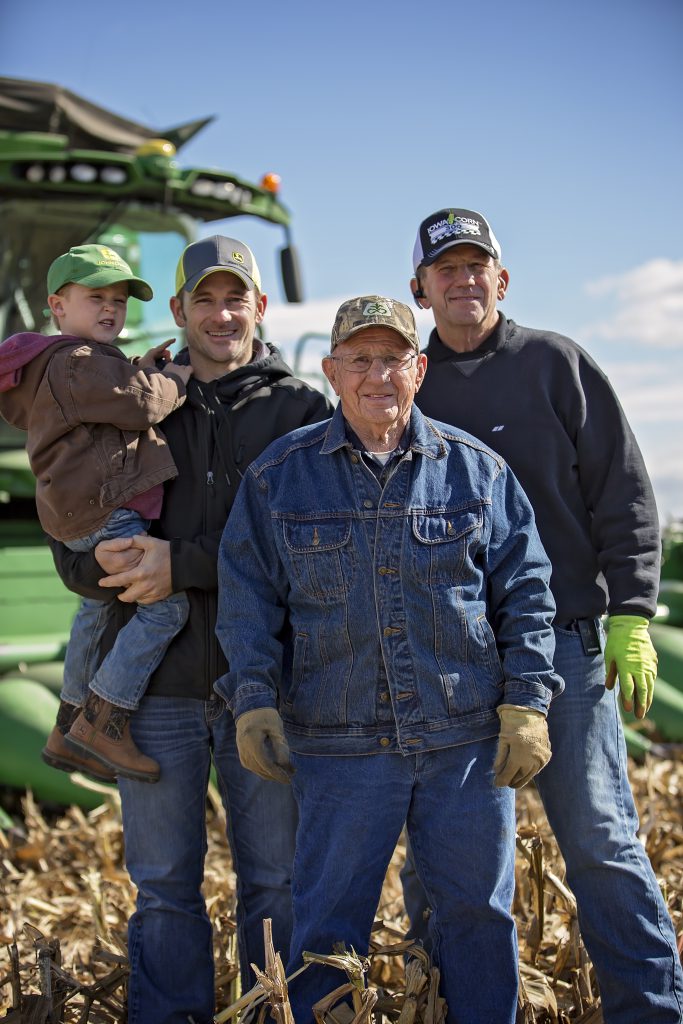
Davis County farmer Roger Wuthrich was hoping to do some experimenting with cover crop mixtures this year, but due to the variable weather his farm endured during the 2020 growing season, he’s just happy the early seeded cover crops have emerged.
“I’ve seen first-hand the soil health benefits that come with cover crops, but unfortunately, we’re not going to get as many acres seeded this year because it’s been too dry, and now harvest is dragging on a bit too long,” he said. “Where the cover crops are established, our weed pressure will be lower, so if we can seed some later, we certainly will.”
On the land that surrounds his home, Wuthrich said it was one of the driest summers he’s seen in a long time. “Rain events this summer were sparse. And when it rained, it was variable,” he said. “On my home farm, we didn’t have any rain in July or August, and that’s where the lowest yields turned up. Further east, some farms got some rain, and those yields are much better.”

After he completed soybean harvest, he was making good progress with the commercial corn in late October, but still needed to get the organic soybeans harvested so he could plant winter wheat. “The organic soybeans were planted later, and it’s been a battle to get them to the finish line.”
Overall, Wuthrich anticipates commercial corn and soybean yields will be close to his five-year average, but he’s not optimistic about the organic soybeans. “I don’t see enough pods,” he said. “It wasn’t a good year for the organic soybean crop.”
As part of his prescribed nutrient plan, manure was being applied this fall, and he was waiting for just the right conditions to apply anhydrous. “While I had to make some adjustments this year due to the adverse weather, I know this system of no-tilling as many acres as possible along with cover crops works for me,” he said. “On our highly erodible land, we have to use 4R Plus practices to keep the soil in place and build organic soil matter.”
Wuthrich encourages farmers to consider the long-term benefits of 4R Plus practices like no-till and cover crops. “No two years on the farm are ever the same, and we certainly are dealing with the end result of variable weather this year,” he said. “Even though our yields weren’t as high as I had hoped, we’re thankful for what we’ve got given the long stretch of dry weather. I have to believe that’s the result of conserving soil and building organic matter in the years where I’ve been able to get cover crops established.”
Click here to ask Roger a question about his farming operation.
